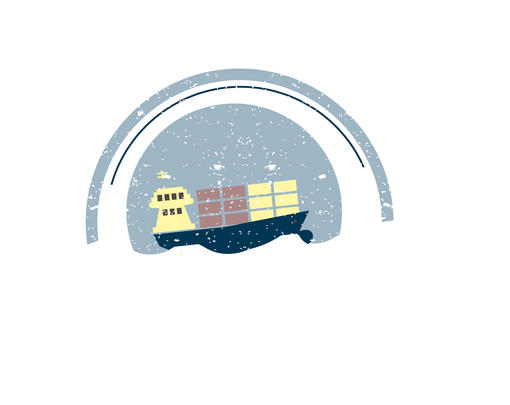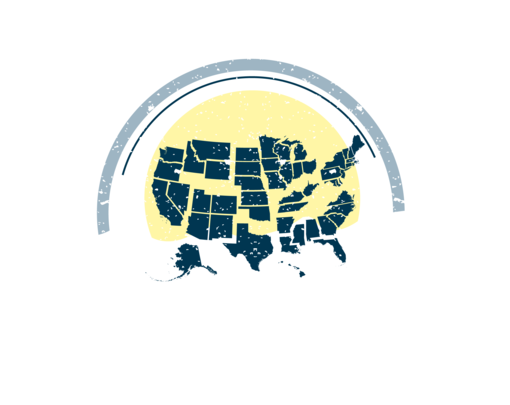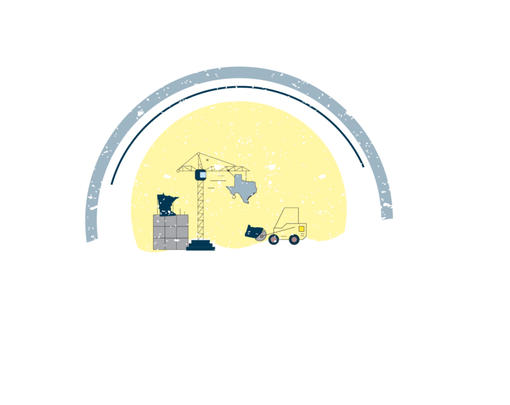What are the challenges presented by global climate change?
The dangers of climate change are now well documented. Unless the world reduces emissions of carbon dioxide and other greenhouse gases, global temperatures will rise beyond the 2-degree Celsius threshold agreed on by many scientists as a critical limit.1 Global average temperature increases beyond that level (which some already consider perilously high) are associated with cascading humanitarian, ecological, and economic challenges. Sea levels will rise, inundating coastal areas and islands. Extreme weather will disrupt food systems and population centers. Ocean acidification will destroy coral reefs and disease transmission patterns will fluctuate. Conflict over resource scarcity and forced migration will likely increase.
Absent dramatic changes, current “business as usual” models predict warming in the range of 3.5 degrees with a range of uncertainty of 2.1 to 4.6 degrees by 2100, likely doubling the projected limit.2 In fact, even after the historic Paris Agreement in 2015, noted climate activist and scholar Bill McKibben warns that “if every nation in the world complies with the Paris Agreement, the world will heat up by as much as 3.5 degrees Celsius by 2100—not the 1.5 to 2 degrees promised in the pact’s preamble.” 3 Meanwhile, “tipping points” loom that are likely to trigger dangerous feedback loops (for example, melting permafrost releases methane, which traps more heat, which melts more permafrost, which releases more methane…) ushering in further radically destabilizing changes.4
Peer-reviewed research by the Climate Vulnerable Forum has, in fact, has estimated that climate change already causes 400,000 deaths annually, “mainly due to hunger and communicable diseases that affect above all children in developing countries.” 5 To put this number in perspective, in the thirteen years from 2000-2013 a total of approximately 100,000 people are estimated to have died from terrorism worldwide—roughly one fourth the number estimated to die from climate change each year.6 With hundreds of millions of people living in low-lying regions across the globe, rising sea levels also threaten large numbers. Cities like Miami, New York, and San Francisco are projected to face severe challenges and in some cases (particularly Miami) displacement. 7
Encouraging trends also come with their own complications. Recent examples of “decoupling” carbon emissions from growth at the global level are significant. 8 However, even with relative decoupling—where emissions do not increase at the same rate as economic growth—additional carbon is still making it into the atmosphere. Yet global emissions need to decline every year by more than 5 percent to have a reasonable chance of averting climate destabilization.9 A number of climate scientists and activists now call for net-zero carbon emissions by around 2050 to keep global average temperatures from rising more than 1.5 degrees Celsius.10
Other complications present additional challenges. Tremendous advancements have been made in energy efficiency.11
Yet efficiency gains can effectively reduce prices and may thus be partially offset by increased consumption. While the evidence is far from certain, estimates suggest such global economic “rebound effects” can be up to 50 or 60 percent—effects that have not been factored into many recent climate mitigation models. Ted Nordhaus and Michael Shellenberger write that “most climate mitigation scenarios still fail to account for significant levels of — or in many cases, any — rebound.” 12 also see: 13
How does the Pluralist Commonwealth tackle ecological threats such as climate change?
Here and in general, as noted in the section on GROWTH, the Pluralist Commonwealth seeks, first, to build a culture of greater economic security and ecological sustainability from the bottom up; second, to steadily create new economic institutions that are not required to drive for ever greater profit and GROWTH at the expense of the environment; and third, especially in connection with global warming, to develop new forms of energy production and energy conservation. These directions intersect with positive developments in democratized economic institution development and community-building at all levels.
Critically, the Pluralist Commonwealth recognizes the difficulty of enforcing traditional regulatory or taxing approaches to reducing dangerous emissions. Major energy companies (primarily oil and coal) and ideological efforts like that of the Koch brothers’ Americans for Prosperity have exploited the anger of displaced and dissatisfied white workers and others to thwart important attempts to control emissions—defeating, for instance, the Obama Administration’s proposed climate legislation in 2010. In her 2013 investigation of the failure of cap-and-trade legislation in 2009 and 2010, Harvard University political scientist Theda Skocpol emphasized the role of ideological and populist forces. She wrote, “[n]or will one more deal with corporate leaders get environmentalists very far on the legislative front –not because it is inherently wrong to deal with business leaders, but business people are not, right now, the prime arbiters in the Republican Party. Ideological advocates, carbon industry dead-enders, and populist anti-government forces are the ones who hold sway in the GOP right now, including billionaire elites and grassroots activists fiercely opposed.” 14 Exxon Mobil, meanwhile, has known about the effects of carbon emissions in promoting climate change since the late 1970s and has spent more than $30 million promoting climate denialism. State attorney generals from New York to California are currently suing Exxon for defrauding their shareholders over this behavior. 15 16 Despite important international agreements (the Kyoto Protocol in 1992, the Copenhagen Agreement in 2009, and the Paris Agreement in 2015) they have steadily opposed significant regulatory action, and investment in solar, electric car, conservation, insulation and other energy saving alternatives.
The Pluralist Commonwealth works first to substitute democratically owned economic institutions for private firms in many parts of the energy industry, thereby minimally extracting them from direct involvement in the political process through campaign contributions, lobbying, and election financing in general. Second, it substitutes institutions at both the local and the national level that have a positive interest in conservation and alternative clean energy sources, or are, minimally, amenable to both rather than opposed. Third, the Pluralist Commonwealth emphasizes a broad range of strategies aimed at dealing directly with the economic and other pressures and insecurities creating radical discontent at the local level. [See COMMUNITY and PLANNING].
What are some promising on the ground developments that point toward an ecologically sustainable Pluralist Commonwealth?
Alternative institutions that DISPLACE corporate power and can contribute to dealing with Climate Change take a variety of forms. Consumer-owned electrical cooperatives, community-owned solar gardens, worker cooperatives that design and install solar energy systems, and municipally-owned utilities—all ground energy production within institutions that distribute ownership broadly—and are thereby, minimally, made more accessible to community demands to alter dangerous practices.
Austin Energy, for instance, has put more than $500 million back into city coffers, while simultaneously powering all city-owned facilities with renewable energy.17 The EBO Group in Sharon Heights, Ohio is a 100% employee-owned ESOP with $24 million in annual sales that transitioned from making components for the coal industry to green manufacturing—such as building parts for converting commercial vehicles into electric hybrids.18
Coastal Community Action in Washington state sells 13.5 million KWh of wind power back to its local public utility to raise more than half a million dollars annually to fund housing, homeless, and elderly assistance programs.19 20 21
In addition, addressing climate change requires the intentional cultivation—community by community—of an ecologically mindful culture. Manifestations of the necessary change in cultural values include the many groups developing environmentally oriented programs locally. For instance, the Congressional Research Service reports that there are an estimated 18,000 community gardens in the United States, more than 7000 farmer’s markets, and more than 12,000 farms used community-supported agriculture (CSA) programs where farmers sell their produce directly to consumers.22 For a discussion of the direct and indirect environmental benefits of community gardens, see:23 Interfaith Power & Light, to take another example, has over 40 state affiliates working with 18,000 congregations to advocate for climate justice and help congregations invest in renewable energy.24
In Boulder, Colorado a direct expression both of new cultural and political attitudes and new institutional development is the citizen-led effort to replace the existing private utility that produces more than 50 percent of its energy from coal with a democratically responsive, PUBLIC utility.25
Other indications of cultural change involve the diverse array of groups falling under the loose title of “Blockadia” who are fighting to save their land and livelihoods from the oil and gas industry.26
Anti-Keystone XL pipeline activists in Texas, Native Americans fighting coal extraction in Montana’s Powder River Basin, the Standing Rock Sioux and their allies using direct action to block the Dakota Access Pipeline, First Nations and indigenous Tar Sands blockaders in Canada, and others in Greece, Nigeria, and Ecuador are all fighting for a future where the values of sustainability and intergenerational equity are respected.
See also:
COMMUNITY, ECOLOGICAL SUSTAINABILITY, ECONOMIC GROWTH, PLANNING, PUBLIC
Further reading
Bill McKibben, “Global Warming’s Terrifying New Math,” Rolling Stone, July 19, 2012.
Deborah Warren and Steve Dubb, Growing a Green Economy for All: from Green Jobs to Green Ownership (College Park, MD: The Democracy Collaborative, 2010).
Julie MacArthur, Empowering Electricity: Co-operatives, Sustainability and Power Sector Reform in Canada (Vancouver: UBC Press, 2016).
Naomi Klein, This Changes Everything (New York: Simon & Schuster, 2014).
- 1 Carbon Brief, “Two Degrees: The History of Climate Change’s Speed Limit,” Carbon Brief, August 12, 2014, accessed November 2, 2016.
- 2Drew Jones, “Factsheet—U.S. and China Ratification of the U.N. Paris Agreement by the Numbers,” Climate Interactive, September 3, 2016, accessed November 2, 2016.
- 3Bill McKibben, “A World at War,” The New Republic, August 15, 2016, accessed November 2, 2016.
- 4 Naomi Klein, This Changes Everything: Capitalism vs. The Climate (New York, NY: Simon and Schuster, 2014), 15.
- 5Climate Vulnerable Forum, Climate Vulnerability Monitor: A Guide to the Cold Calculus of a Hot Planet, 2nd ed., accessed November 2, 2016
- 6Rebecca Leber, “Obama is Right: Climate Change Kills More People Than Terrorism,” The New Republic, Februrary 11, 2015, accessed November 2, 2016.
- 7For general science about global sea level rise: Barbara Neuman et al., “Future Coastal Population Growth and Exposure to Sea-Level Rise and Coastal Flooding – A Global Assessment,” PloS one 10 (2015), 11 and Gregor Aisch, David Leonhardt, and Kevin Quealy, “Flooding Risk from Climate Change, Country by Country,” The New York Times, September, 23 2014, accessed November 2, 2016; for information about the effects of sea level rise on American coastal cities see: Justin Worland and David Johnson, “See How Your City May Be Affected by Rising Sea Levels,” Time, March 14, 2016, accessed November 2, 2016.
- 8(International Energy Association, “Decoupling of Global Emission and Economic Growth Confirmed,” International Energy Association, March 16, 2016, accessed November 2, 2016.
- 9 Michael Raupach, et al., “Sharing a Quota on Cumulative Carbon Emissions,” Nature Climate Change, 4(2014):873-879, accessed November 2, 2016, doi: 10.1038/nclimate2384.
- 10 Joeri Rogelj, et al. “Energy system transformations for limiting end-of-century warming to below 1.5 °C,” Nature Climate Change 5(2015):519–527, accessed November 2, 2016, doi:10.1038/nclimate2572.
- 11 Jeff Spross, “Efficiency Gains Over the Last Decade Saved More Energy Than China Consumed in 2011,” Think Progress, October 9, 2016, accessed November 2, 2016.
- 12 Andrew Revkin, “Another Round on Rebound,” New York Times, October 24, 2014, accessed November 2, 2016;
- 13 Kenneth Gillingham, David Rapson, and Gernot Wanger, “The Rebound Effect and Energy Efficiency Policy,” Resources for the Future, Discussion Paper 24 (November 2014):14-39, 24.
- 14 Theda Skocpol, “Naming the Problem: What It Will Take to Counter Extremism and Engage Americans in the Fight against Global Warming” (paper prepared for the Symposium on The Politics of America’s Fight Against Global Warming, Cambridge, MA, February 14, 2013), 130, accessed November 3, 2016.
- 15 Shannon Hall, “Exxon Knew about Climate Change almost 40 years ago,” Scientific American, October 26, 2015, accessed November 3, 2016;
- 16John Schwartz, “Exxon Mobil Fights Back at State Inquiries into Climate Change Research,” New York Times, June 16, 2016, accessed November 3, 2016.
- 17 Marjorie Kelly and Sarah McKinley, “Cities Building Community Wealth: Austin, Texas,” December 2015, accessed November 3, 2016.
- 18 Deborah Warren and Steve Dubb, Growing a Green Economy for All: from Green Jobs to Green Ownership (College Park, MD: The Democracy Collaborative, 2010), 50, accessed November 3, 2016.
- 19Deborah Warren and Steve Dubb, Growing a Green Economy for All: from Green Jobs to Green Ownership (College Park, MD: The Democracy Collaborative, 2010), 44, accessed November 3, 2016.
- 20 For specific details on CCA’s wind energy revenue, see “Coastal Energy Project,” Coastal Community Action Program, accessed November 3, 2016.
- 21 For more specific examples, see ECOLOGICAL SUSTAINABILITY.
- 22 Renee Johnson, et al., The Role of Local Food Systems in U.S. Farm Policy (Washington, DC: Congressional Research Service, March 12, 2013), accessed November 3, 2016.
- 23 Heather Okvat and Alex Zautra, “Community Gardening: A Parsimonious Path to Individual, Community, and Environmental Resilience” American Journal of Community Psychology 47 (2011).
- 24“Fact Sheet and Annual Report,” Interfaith Power & Light, 2015, accessed November 2, 2016.
- 25 City of Boulder, Colorado, “Boulder’s Energy Future,” accessed November 3, 2016.
- 26 Jae Martin and Jesse Fruhwirth, “Welcome to Blockadia,” Yes! Magazine, January 11, 2013, accessed November 3, 2016.





























